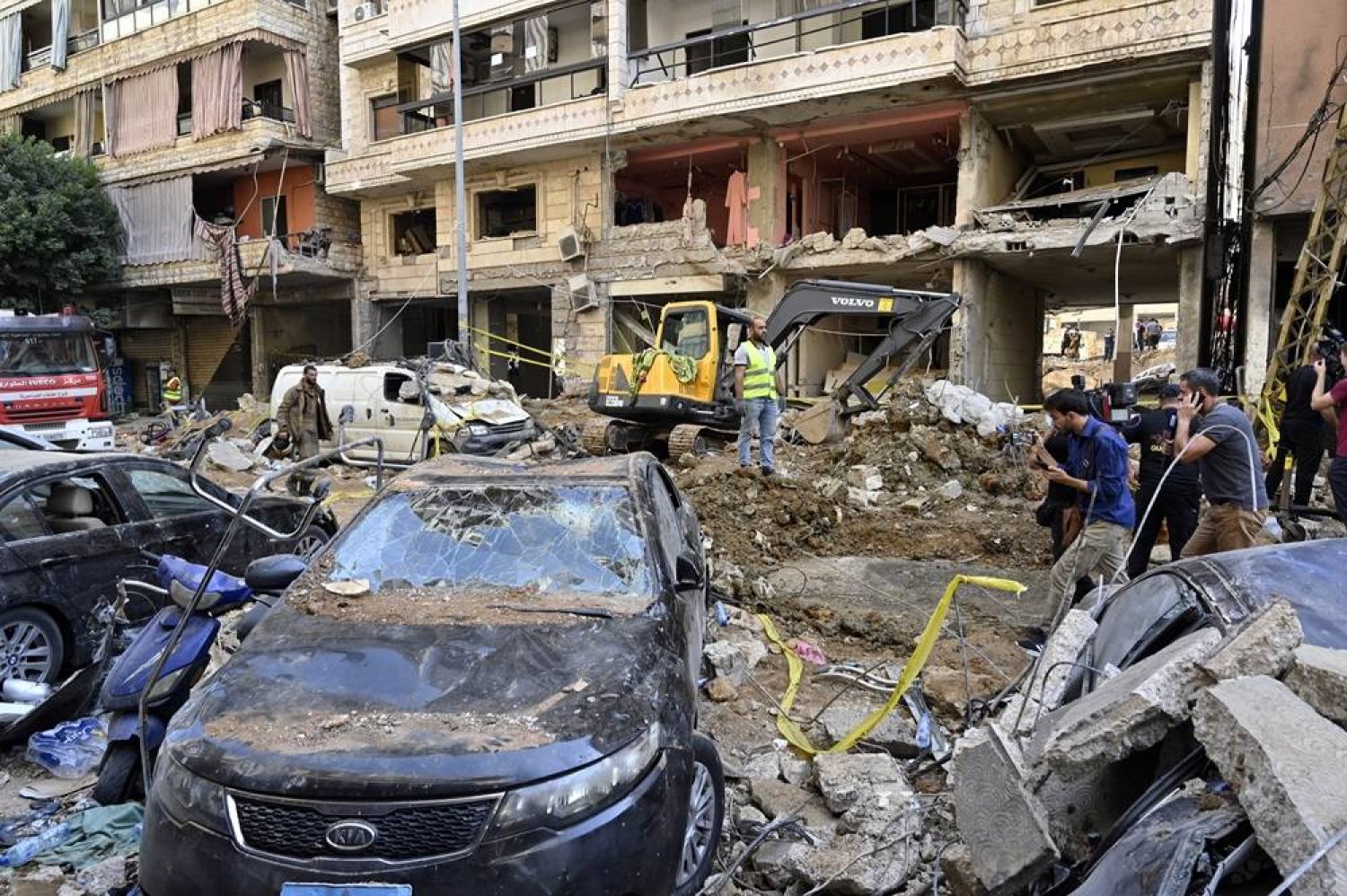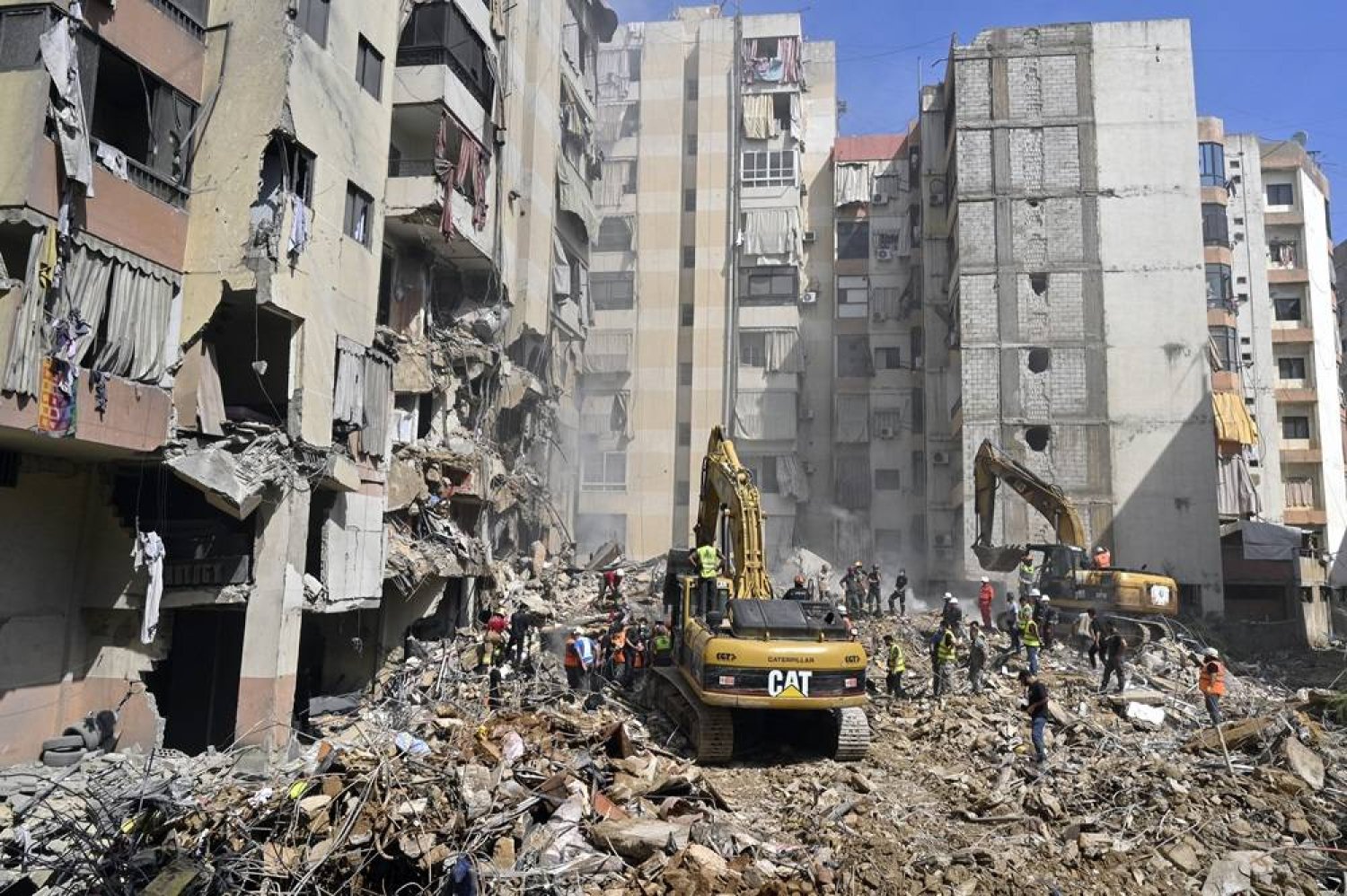A recent Israeli air strike on Beirut’s southern suburbs has escalated the already simmering tensions between Israel and Hezbollah, plunging the region into further chaos and uncertainty. What began as an isolated border conflict has now spread to the densely populated urban areas of Lebanon, leaving 37 people dead, including children and women, and many more injured. With over 60 wounded, Beirut finds itself at the heart of a new phase of this long-standing conflict.
The air strike, which Israel claims targeted senior members of Hezbollah’s Radwan special forces unit, has sparked outrage in Lebanon and the wider Arab world. Lebanese officials have condemned the strike as a violation of international law, with accusations of war crimes being levied against the Israeli government. As the death toll rises, so too does the fear that this latest escalation could drag the entire region into a wider war.

A Targeted Attack or Civilian Massacre?
On Friday, during rush hour, Israel launched an air strike in Beirut’s Dahiya district, a densely populated area known as a Hezbollah stronghold. According to Israeli military officials, the strike was aimed at senior members of Hezbollah’s elite Radwan Forces. Among those killed were two high-ranking Hezbollah commanders, Ibrahim Aqil and Ahmad Mahmoud Wahabi, alongside 12 other members of the group. Israel claimed the attack was a preemptive measure aimed at neutralizing a significant threat posed by Hezbollah militants.
However, the devastation extended far beyond Hezbollah operatives. According to Lebanon’s Health Minister Firass Abiad, the air strike caused widespread destruction, wrecking two residential buildings and killing 37 civilians, including three children and seven women. Minister of Public Works and Transport, Ali Hamieh, condemned the attack, calling it a “war crime” and accusing Israel of deliberately targeting civilians in an effort to provoke a larger conflict.
“This is not just an attack on Hezbollah; this is an attack on Lebanon,” Hamieh told reporters. “Israel is dragging the region into a war, and we must do everything in our power to stop it.”
Hezbollah’s Response and Rising Tensions
Hezbollah, the powerful Shia militant group and political party, confirmed the deaths of its commanders but did not immediately retaliate. In recent months, Hezbollah has engaged in frequent cross-border skirmishes with Israel, but this attack marks a significant escalation in the ongoing conflict. With tensions running high, many are bracing for Hezbollah’s response, fearing that the group could retaliate with a major military operation against Israel.
Lebanon’s Interior Minister Bassam Mawlawi warned that the country had entered a “decisive” phase following the air strike, urging caution and calling for diplomatic efforts to prevent further violence. “We are at a crossroads,” Mawlawi said in a televised address. “The priority must be to prevent further violations of Lebanese territory and ensure that the security situation does not spiral out of control.”

A Preemptive Strike
Israeli Prime Minister Benjamin Netanyahu defended the strike, arguing that it was a necessary measure to protect Israeli citizens from Hezbollah’s growing influence and military capabilities. “Our goals are clear,” Netanyahu said. “We are acting in defense of our people, and we will continue to do so.”
Israel’s Defense Minister Yoav Gallant echoed these sentiments, adding, “We will continue pursuing our enemies in order to defend our citizens, even in Beirut.”
For Israel, the southern suburbs of Beirut are seen as a key Hezbollah stronghold, and targeting the group’s leadership in the area is viewed as a tactical advantage in the broader conflict. Israel’s military intelligence has long identified Hezbollah’s Radwan Forces as a major threat, responsible for orchestrating attacks against Israeli forces along the Lebanon-Israel border.
In July, an Israeli air strike killed Fuad Shukr, Hezbollah’s top military commander, in what was considered a major blow to the group’s operational capabilities. Now, with the deaths of Ibrahim Aqil and Ahmad Mahmoud Wahabi, Israel believes it has dealt another significant blow to Hezbollah’s leadership.
The Impact on Lebanese Civilians
The human cost of the attack has been devastating, with civilian casualties once again at the forefront of the conflict. In addition to the 37 killed, more than 60 people were injured in the strike, many of them critically. The three children killed in the attack were aged four, six, and ten, according to Lebanon’s health minister. The residential area targeted by the strike is home to thousands of civilians, and the destruction has left many homeless and traumatized.
The international community has responded with outrage, with Iran’s Supreme Leader Ayatollah Ali Khamenei accusing Israel of committing “shameless crimes” against children and civilians. “What we are seeing is not a fight against terrorism, but a war against innocent people,” Khamenei said in a statement. “Israel must be held accountable for its actions.”
Lebanon’s Minister of Public Works and Transport, Ali Hamieh, has called for an international investigation into the attack, arguing that Israel’s actions constitute a violation of international humanitarian law. “This was not a military operation; this was an act of terrorism,” Hamieh said. “The international community must act now to hold Israel accountable before more innocent lives are lost.”

Hezbollah’s Strategic Dilemma
Despite the heavy losses suffered by Hezbollah, the group finds itself in a difficult position. Retaliating against Israel could trigger a full-scale war, something Hezbollah has been keen to avoid since the devastating 2006 conflict. At the same time, failing to respond would risk damaging the group’s credibility and support base in Lebanon, where many view Hezbollah as the country’s primary defense against Israeli aggression.
Hezbollah’s leader, Hassan Nasrallah, has remained silent in the immediate aftermath of the attack, fueling speculation about the group’s next move. Analysts suggest that Hezbollah may be weighing its options, considering a range of potential responses that could include targeted attacks on Israeli military positions or a broader campaign of rocket strikes.
“Nasrallah is playing a careful game,” says Ibrahim Fraihat, a professor of international conflict resolution at the Doha Institute for Graduate Studies. “He knows that Hezbollah cannot afford another full-scale war with Israel, but he also knows that doing nothing would be seen as a sign of weakness.”
Fraihat warns that the situation in Lebanon is becoming increasingly volatile, with the possibility of further Israeli strikes and Hezbollah retaliation growing by the day. “The real danger here is that this conflict could spiral out of control, drawing in other regional actors and turning Lebanon into a battleground once again.”
As the death toll rises and the violence escalates, the international community faces mounting pressure to intervene. The United Nations has called for an immediate ceasefire and urged both sides to exercise restraint. However, many in Lebanon believe that the international community, particularly Western nations, has been complicit in allowing Israel to act with impunity.
“What we are seeing in Lebanon takes the disrespect of international humanitarian law to a new level,” says Fraihat. “These violations are being normalized by the silence of the West.”
The United States, Israel’s closest ally, has so far refrained from condemning the air strike, instead reiterating its support for Israel’s right to defend itself against Hezbollah. This stance has drawn criticism from human rights organizations, which argue that the U.S. is enabling Israel’s aggressive tactics by providing diplomatic cover for its actions.
“Israel knows that it can act without fear of consequences,” says Zein Basravi, a journalist reporting from Beirut. “They knew that there would be civilian casualties, and they went ahead and did it anyway. And that’s what the Lebanese are saying, that, once again, Israel is acting with absolute immunity.”
As Beirut mourns its dead, the city remains on edge, with many fearing that the worst is yet to come. The air strike has opened a new chapter in the confrontation between Israel and Hezbollah, one that could have far-reaching consequences for the entire region.
“The big conversation across Lebanon is what’s going to happen next,” says Al Jazeera’s Imran Khan, reporting from Beirut. “People here aren’t really concerned about what Hezbollah does next. They are worried about what Israel is going to do next.”
With Israeli forces continuing to carry out strikes in Lebanon and Hezbollah launching retaliatory rocket attacks, the prospect of a wider war looms large. The Lebanese government has called for an emergency meeting of the Arab League to discuss the situation, while Hezbollah has vowed to defend Lebanon’s sovereignty against any further Israeli aggression.
The air strike on Beirut’s southern suburbs marks a dangerous escalation in the long-running conflict between Israel and Hezbollah. As the death toll rises and the violence intensifies, the region stands on the brink of a wider war that could have devastating consequences for both Lebanon and Israel. With international law hanging in the balance and civilian lives caught in the crossfire, the question now is whether the international community will step in to prevent further bloodshed – or whether the region will be left to burn.



